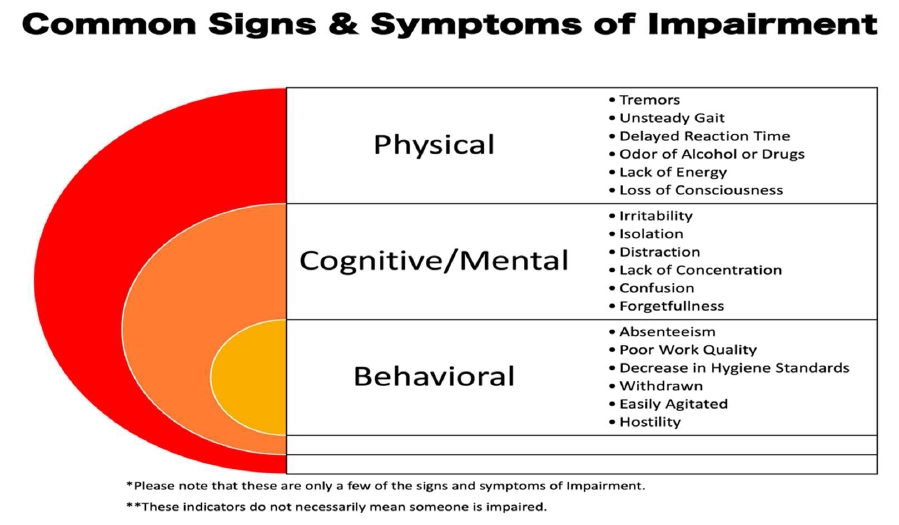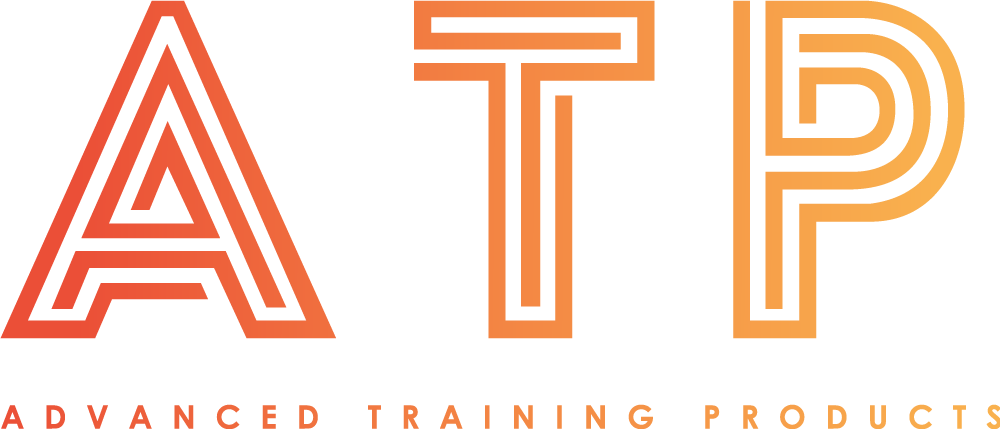White Papers and Press Releases
At Advanced Training Products, we're committed to empowering organizations with the knowledge and tools they need to create safer, healthier workplaces. Our thought leadership resources provide valuable insights into a range of topics, including:
- Total Worker Health® initiatives
- Workplace impairment prevention
- Reasonable suspicion protocols
- Cannabis legalization and its impact on the workplace
Stay informed and stay ahead with our expert analysis and actionable advice.
Keep up with the latest industry news through our press releases below.
Identifying and Recognizing Signs of Impairment: A Comprehensive Guide for Employee Well-being and Workplace Safety
Workplace impairment, encompassing physical, mental, or behavioral conditions that diminish an individual's ability to function safely and effectively, poses a significant challenge for organizations. Beyond the immediate safety concerns and potential legal liabilities, workplace impairment also disrupts floor efficiency, hinders workflow management, and creates cultural and interpersonal challenges. This whitepaper aims to provide a comprehensive guide for identifying and recognizing signs of impairment, empowering employees, and managers to foster a supportive work environment, promote open communication, and implement effective intervention strategies.
Impairment can be a silent threat in the workplace, manifesting in various ways that impact physical, behavioral, and performance aspects of an individual. Physical indicators can include slurred speech, impaired balance, red eyes, unusual smells, and fatigue. Behaviorally, it might present as increased irritability, social withdrawal, erratic behavior, or lack of focus. Performance-wise, watch out for decreased productivity, increased errors, absenteeism, accidents, and difficulties working with others. Recognizing these signs can help address the issue early on, promoting a safer and more productive work environment for everyone.
Identifying and recognizing signs of impairment is an ongoing process that requires a proactive and supportive approach. By providing comprehensive training, fostering open communication, and implementing effective intervention strategies, organizations can create a culture of care and well-being, promoting employee safety, productivity, and long-term success.
Certain states like New Jersey have established the role of the Workplace Impairment Recognition Expert ("WIRE") to help address these issues. Advanced Training Products offers an innovative solution: WIRE Certified Training™ - Equip your organization to recognize impairment, promote well-being, and unlock the full potential of your team. Our platform fosters accountability, simplifies assessments, and empowers employees to prioritize their health. Invest in TWH and watch employee engagement soar, operational risks diminish, and your business reach new heights. Contact Advanced Training Products today and ignite the journey to success!
Training and Awareness: Empowering Employees and Managers
Effective identification and recognition of impairment require comprehensive training for both employees and managers.
- Educate employees about the different types of impairment and their potential signs and symptoms.
- Emphasize the importance of open communication and reporting concerns to managers or trusted colleagues.
- Encourage self-awareness and encourage employees to seek help if they are experiencing impairment-related issues.
- Equip managers with the skills to identify, address, and intervene in impairment-related issues effectively.
- Provide managers training on conducting sensitive conversations about impairment concerns.
- Empower managers to promote a supportive work environment that fosters open communication and encourages help-seeking behaviors.
Fostering Open Communication and Reporting
Open communication and a culture of reporting concerns are essential for preventing escalation and enabling timely intervention.
- Establish clear policies and procedures for reporting impairment concerns, ensuring confidentiality and respect for privacy.
- (Impairment at Work: Policy and Recognition, 2022)Encourage open dialogue and normalize discussions about impairment, emphasizing that seeking help is a sign of strength and not weakness.
- Provide multiple channels for reporting concerns, including anonymous reporting options if desired.

Intervention Strategies: Supporting Employees and Promoting Well-being
When impairment-related concerns arise, effective intervention strategies are crucial for supporting employees and promoting well-being.
- Conduct a confidential investigation to gather information and assess the situation.
- Engage in a supportive conversation with the employee, expressing concern for their well-being and safety.
- Collaborate with the employee to identify appropriate resources and support services, such as employee assistance programs or counseling services.
- Establish a clear plan for action, including any necessary accommodations or interventions.
Works Cited
Impairment at Work: Policy and Recognition. (2022, June 6). Retrieved December 2023, from Canadian Centre for Occupational Health and Safety: https://www.ccohs.ca/oshanswers/hsprograms/impairment/impairment.html
Making the Business Case for Total Worker Health. (2021, August). Retrieved December 2023, from Centers for Disease Control and Prevention: https://www.cdc.gov/niosh/twh/business.html

